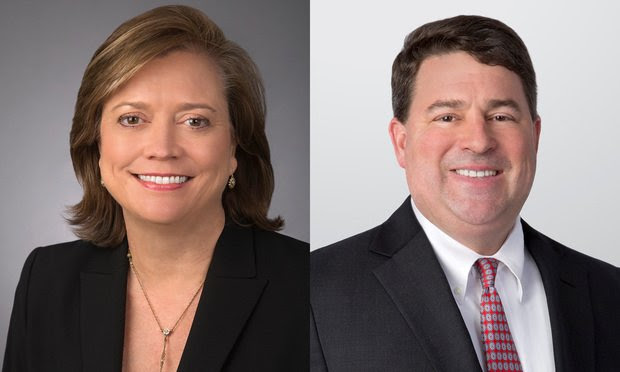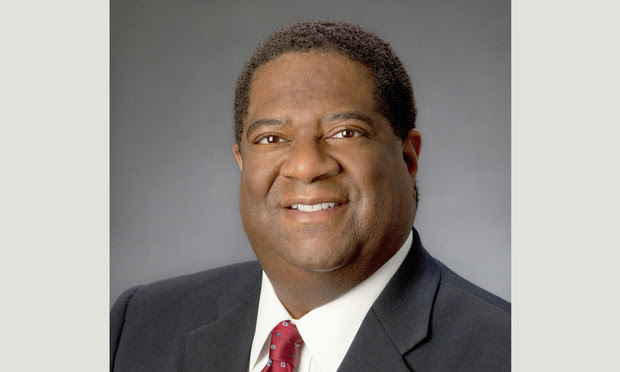Inside Track: How Legal Departments Are Proving Their Companies Are Doing 'Essential Business'
In-house lawyers are helping their companies navigate the novel coronavirus pandemic by proving they're doing what is now termed as 'essential business,' which means a company can still operate at relatively normal capacity if it is providing necessities to the public. Also, the countless emails from Big Law firms about COVID-19 webinars are not working for some in-house counsel, according to a viral tweet.
March 25, 2020 at 06:05 PM
4 minute read
Over the last week, 18 states, including New York and California, placed a "shelter in place" policy for millions of residents to avoid spreading the COVID-19 coronavirus. With the pandemic gripping the globe, in-house counsel are trying to find ways to keep business operations afloat, and one question that's been coming up is whether a company is an "essential business."
The U.S. Department of Homeland Security through its Cybersecurity & Infrastructure Security Agency released an order identifying an essential business as part of the "critical infrastructure industry," as in providing health care services, pharmaceutical needs and food supply.
In-house counsel have to stay on top of the news as it changes every day, lawyers told Corporate Counsel. One responsibility in-house counsel can do is provide essential service letters for employees to carry in transit and letters for facility personnel to hand to inspectors in case of a facility visit, according to Thomas Lee, a Bryan Cave partner in San Francisco.
How has your company been affected as a "nonessential business?" Or how did you help your company keep operating as an "essential business?" Let me know at [email protected].
"'Force majeure.' I've heard that phrase more in the last three days than in my 30 years of law practice."
Louis Chodoff, a partner at Ballard Spahr in Cherry Hill, New Jersey, told Corporate Counsel in our second story covering the increase in force majeure claims in the wake of the COVID-19 pandemic.
What's Happening

In High Demand
To combat the shortage of N95 masks and other necessary medical supplies, President Donald Trump issued an executive order under the Defense Production Act of 1950. The order allows the federal government to require manufacturers to distribute their supplies to the government amid the growing COVID-19 pandemic.
In-house counsel at companies that make or can make medical supplies are now helping their companies control the high production rate for these supplies. Angela Styles at Akin Gump Strauss Hauer & Feld said many companies over the years have sent their production of N95 masks overseas, so there's uncertainty on how the law will impact supplies not made in the U.S.
China had restricted exports of N95 masks to handle its outbreak. If an order can't be fulfilled, Robert Tompkins at Holland & Knight said contractors should advise that the foreign supply chain could impact the ability to fulfill an order and consider rejecting the order.
A major hurdle goes back to the "shelter in place" orders with employees unable to work in facilities to help manufacturers fulfill these government contracts. 
Enough Already!
Is your inbox inundated with invitations for COVID-19 webinars from law firms? It turns out some in-house counsel are already tired of being asked to join webinars.
What do in-house counsel need instead? Apparently, a one-pager on the COVID-19 legal issues of the day, according to a Twitter thread that went viral that had in-house counsel and Big Law partners chiming in. 
More Time, Please?
Trade organizations and companies such as United Parcel Service and National Association of Mutual Insurance Companies wrote a letter to California Attorney General Xavier Becerra asking for the July 1 enforcement date of the California Consumer Privacy Act to be pushed back.
The reason? The novel coronavirus pandemic has interrupted business operations to the point some companies are already laying off employees to avoid economic devastation. Also, in-house counsel are still waiting for clarification on the enforcement rules.
On the Move

Avis Budget Group said its longtime general counsel and executive vice president Michael Tucker is leaving as the car rental industry faces immediate revenue losses related to the novel coronavirus. Tucker will be replaced by corporate secretary Jean Sera, who has been with Avis since 2006.
This content has been archived. It is available through our partners, LexisNexis® and Bloomberg Law.
To view this content, please continue to their sites.
Not a Lexis Subscriber?
Subscribe Now
Not a Bloomberg Law Subscriber?
Subscribe Now
NOT FOR REPRINT
© 2025 ALM Global, LLC, All Rights Reserved. Request academic re-use from www.copyright.com. All other uses, submit a request to [email protected]. For more information visit Asset & Logo Licensing.
You Might Like
View All
Inside Track: How 2 Big Financial Stories—an Antitrust Case and a Megamerger—Became Intertwined

Inside Track: Lawyers for Big Tech Give Harris Benefit of Doubt, Despite Pummeling They Took Under Biden

Inside Track: Late-Career In-House Leaders Offer Words to Live by

Inside Track: ESG Movement Hits 'Teenage Years,' Testing Companies' Resolve
Law Firms Mentioned
Trending Stories
- 1We Must Uphold the Rights of Immigrant Students
- 2Orrick Picks Up 13-Lawyer Tech, VC Group From Gunderson Dettmer
- 3How Alzheimer’s and Other Cognitive Diseases Affect Guardianship, POAs and Estate Planning
- 4How Lower Courts Are Interpreting Justices' Decision in 'Muldrow v. City of St. Louis'
- 5Phantom Income/Retained Earnings and the Potential for Inflated Support
Who Got The Work
J. Brugh Lower of Gibbons has entered an appearance for industrial equipment supplier Devco Corporation in a pending trademark infringement lawsuit. The suit, accusing the defendant of selling knock-off Graco products, was filed Dec. 18 in New Jersey District Court by Rivkin Radler on behalf of Graco Inc. and Graco Minnesota. The case, assigned to U.S. District Judge Zahid N. Quraishi, is 3:24-cv-11294, Graco Inc. et al v. Devco Corporation.
Who Got The Work
Rebecca Maller-Stein and Kent A. Yalowitz of Arnold & Porter Kaye Scholer have entered their appearances for Hanaco Venture Capital and its executives, Lior Prosor and David Frankel, in a pending securities lawsuit. The action, filed on Dec. 24 in New York Southern District Court by Zell, Aron & Co. on behalf of Goldeneye Advisors, accuses the defendants of negligently and fraudulently managing the plaintiff's $1 million investment. The case, assigned to U.S. District Judge Vernon S. Broderick, is 1:24-cv-09918, Goldeneye Advisors, LLC v. Hanaco Venture Capital, Ltd. et al.
Who Got The Work
Attorneys from A&O Shearman has stepped in as defense counsel for Toronto-Dominion Bank and other defendants in a pending securities class action. The suit, filed Dec. 11 in New York Southern District Court by Bleichmar Fonti & Auld, accuses the defendants of concealing the bank's 'pervasive' deficiencies in regards to its compliance with the Bank Secrecy Act and the quality of its anti-money laundering controls. The case, assigned to U.S. District Judge Arun Subramanian, is 1:24-cv-09445, Gonzalez v. The Toronto-Dominion Bank et al.
Who Got The Work
Crown Castle International, a Pennsylvania company providing shared communications infrastructure, has turned to Luke D. Wolf of Gordon Rees Scully Mansukhani to fend off a pending breach-of-contract lawsuit. The court action, filed Nov. 25 in Michigan Eastern District Court by Hooper Hathaway PC on behalf of The Town Residences LLC, accuses Crown Castle of failing to transfer approximately $30,000 in utility payments from T-Mobile in breach of a roof-top lease and assignment agreement. The case, assigned to U.S. District Judge Susan K. Declercq, is 2:24-cv-13131, The Town Residences LLC v. T-Mobile US, Inc. et al.
Who Got The Work
Wilfred P. Coronato and Daniel M. Schwartz of McCarter & English have stepped in as defense counsel to Electrolux Home Products Inc. in a pending product liability lawsuit. The court action, filed Nov. 26 in New York Eastern District Court by Poulos Lopiccolo PC and Nagel Rice LLP on behalf of David Stern, alleges that the defendant's refrigerators’ drawers and shelving repeatedly break and fall apart within months after purchase. The case, assigned to U.S. District Judge Joan M. Azrack, is 2:24-cv-08204, Stern v. Electrolux Home Products, Inc.
Featured Firms
Law Offices of Gary Martin Hays & Associates, P.C.
(470) 294-1674
Law Offices of Mark E. Salomone
(857) 444-6468
Smith & Hassler
(713) 739-1250








